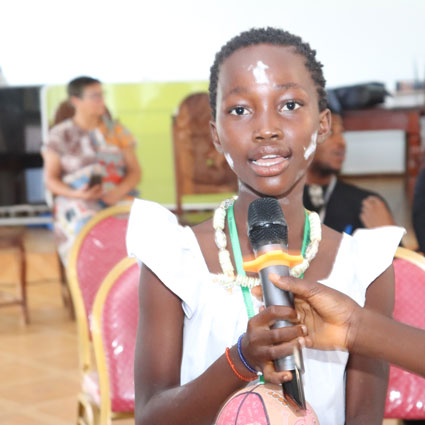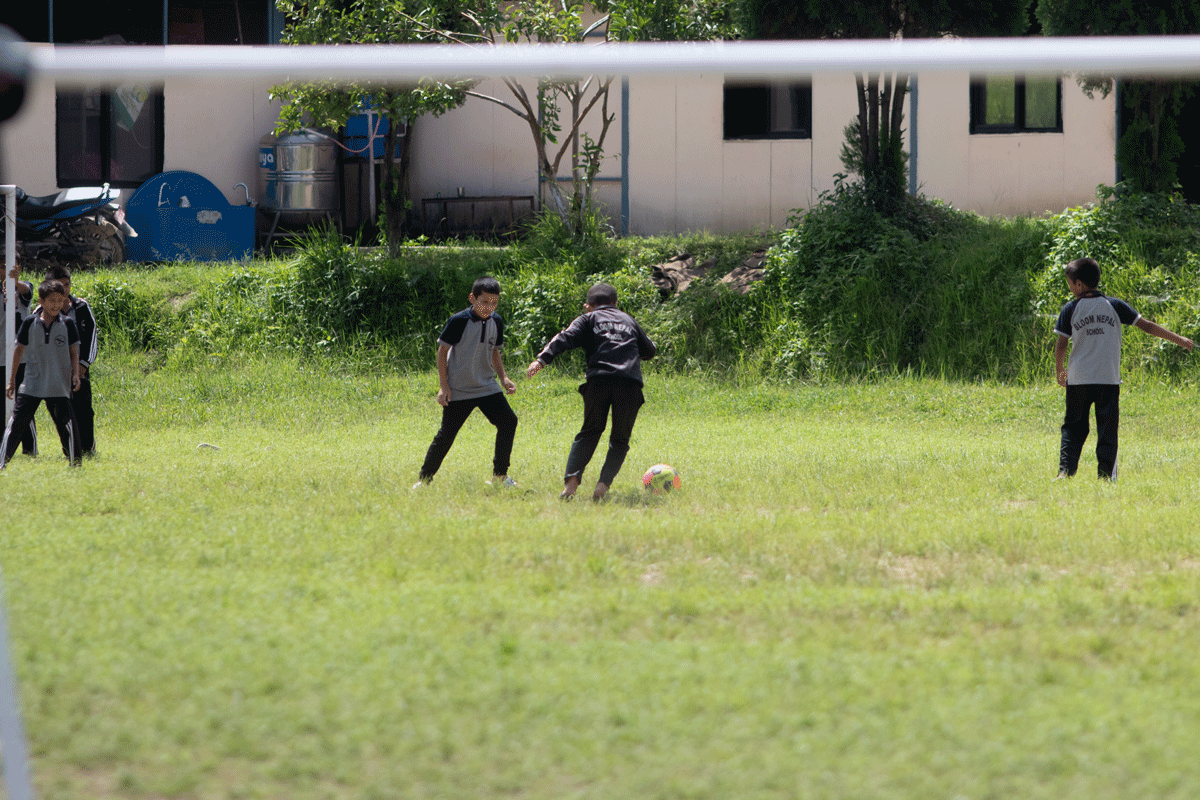
Education
Education
In many parts of the world, going to school involves a short walk or a brief bus ride. However, in Nepal, a country known for its challenging terrain, the path to education can be a strenuous journey involving great distances and tremendous determination.
“When I was a small child,” explained Surya Bahadur Karki, Principal of the Bloom Nepal School outside of Kathmandu, Nepal’s capital city, “I and a group of other children from my village would travel for three hours to get to school. We’d climb and trek across rocky terrain under the hot sun. At night, we would stay with strangers who opened their homes to us. I remember feeling scared.”
Nepal, nestled in the Himalayas, is renowned for its breathtaking mountain ranges and lush valleys. But its rugged geography poses a unique challenge when it comes to providing accessible education for all Nepalese children. In many remote areas, schools are tucked into mountain crevices and are far away from students’ homes. The journey to school can be a daily test of endurance and discipline, particularly during harsh weather conditions.

While the physical obstacles to education can be immense, access to education is also about breaking down economic and cultural barriers and making the curriculum relatable and engaging to children. It’s about ensuring that every child, regardless of where they are born, has the chance to realize their potential through learning.
Bloom Nepal and Peace for People are two Global Fund for Children grassroots partners in Nepal that are working to make quality education accessible – and fun. They are part of GFC’s Partnership to Educate All Kids (PEAK) initiative, which is supported by the LEGO Foundation.
Bloom Nepal integrates “passion-based learning” into government schools and into its own schools, creating a link between music, theater, sports, and education to make learning more enjoyable. Its schools in Itahari in Koshi Province and the Lalitpur District in Bagmati Province offer a mixed residential setting that accommodates day students, weekday boarders, and full-time boarders, providing access to an inspiring education for children from both near and far. Bloom Nepal is a youth-led organization that supports and trains local youth as teachers and staff members, and it has created a system through which students can actively participate in designing the organization’s curriculum and programs.

Peace for People provides free quality education for children in Dhading, a district in western Bagmati Province. With the motto “Play, learn, and grow together,” the organization uses unique approaches such as a “global classroom” to connect students in different countries and offers empowerment programs for girls.
“I take immense pride in our achievements, such as rebuilding two schools and assisting over 3,000 students with materials and scholarships,” said Santosh Bidari, the founder of Peace for People. “Our unwavering commitment to equity and empowerment in rural Nepal is evident. What fills my heart with joy and gratitude is our ability to drive change by introducing play-based teaching methods into the Nepali education system. It’s a privilege to witness the positive impact we’ve made.”
What “access to education” means can vary depending on who you ask and where you ask, but ultimately the goals are the same. Despite formidable obstacles – such as rugged terrain, financial constraints, cultural norms, and rigid curriculums – having the opportunity to learn and grow through education is a fundamental right for all.
Header photo: Children smiling. © GFC
